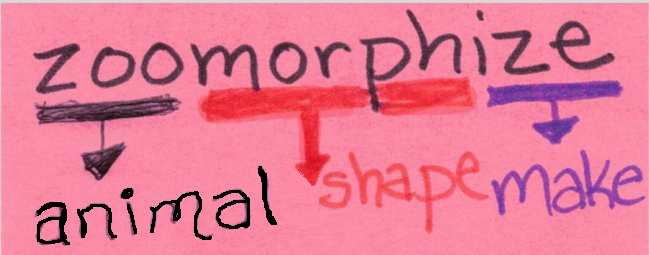Make Your Point > Archived Issues > ZOOMORPHIZE
Send Make Your Point issues straight to your inbox.
If you're more comfortable putting a "zoo" in this word, you can: "zoo uh MORE fize."
Hands up if you love the city of Chicago!
The word "zoomorphize" has Greek bits that literally mean "to (make into the) shape of an animal."
Part of speech:
The word "zoomorphize" is rare, but delightfully precise and easy to understand.
"'BoJack Horseman' imbues the cynical TV industry with zoomorphic soul."
Explain the meaning of "zoomorphize" without saying "portray as an animal" or "describe in animalistic terms."
Alright, so, animals and people do a lot of the same things. Yawning, scratching, baring our teeth, bolting away. So where do we draw the line between zoomorphism and personification?
Try to spend 20 seconds or more on the game below. Don’t skip straight to the review—first, let your working memory empty out.
1.
Near opposites of ZOOMORPHIZE include
|




